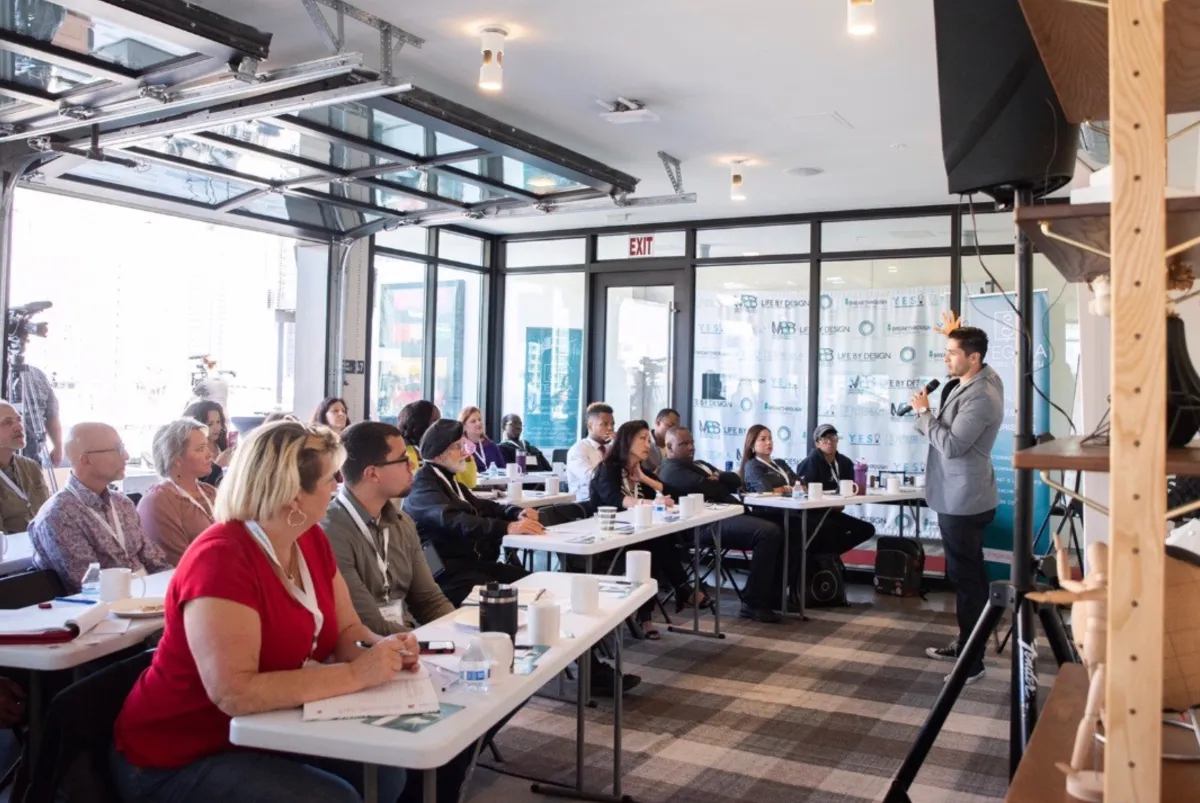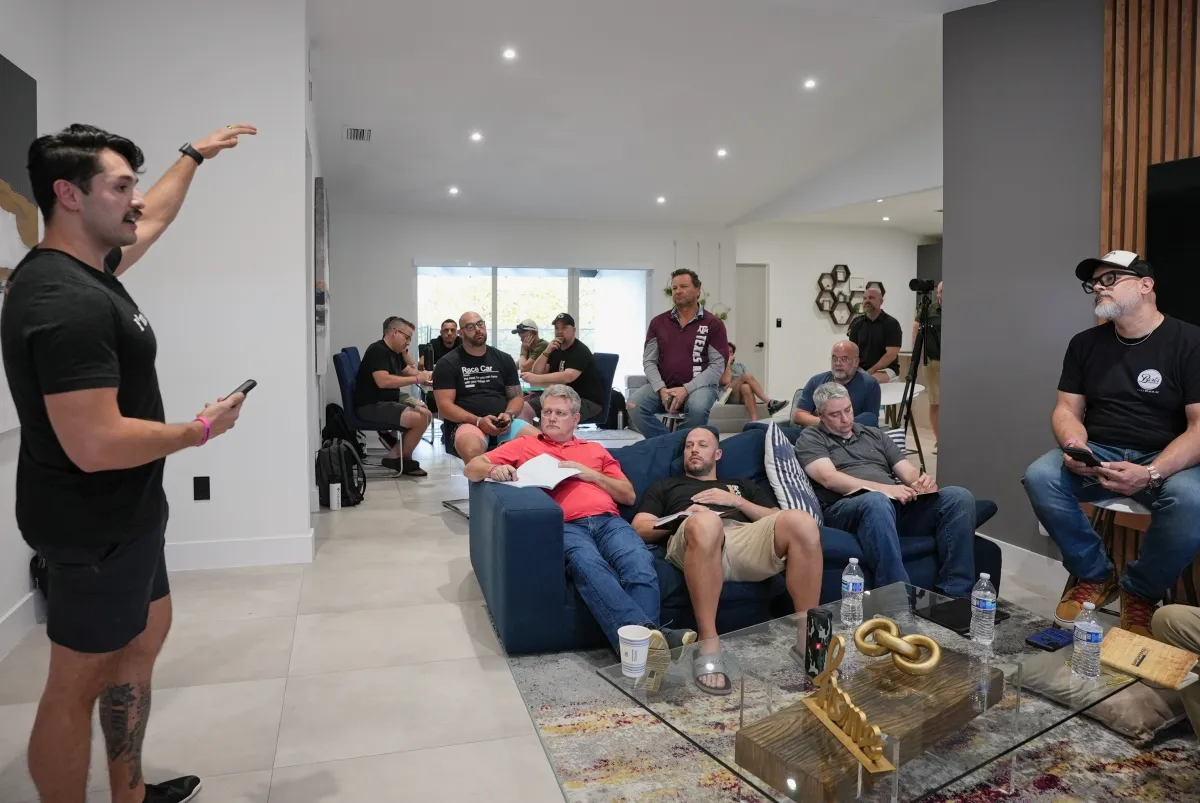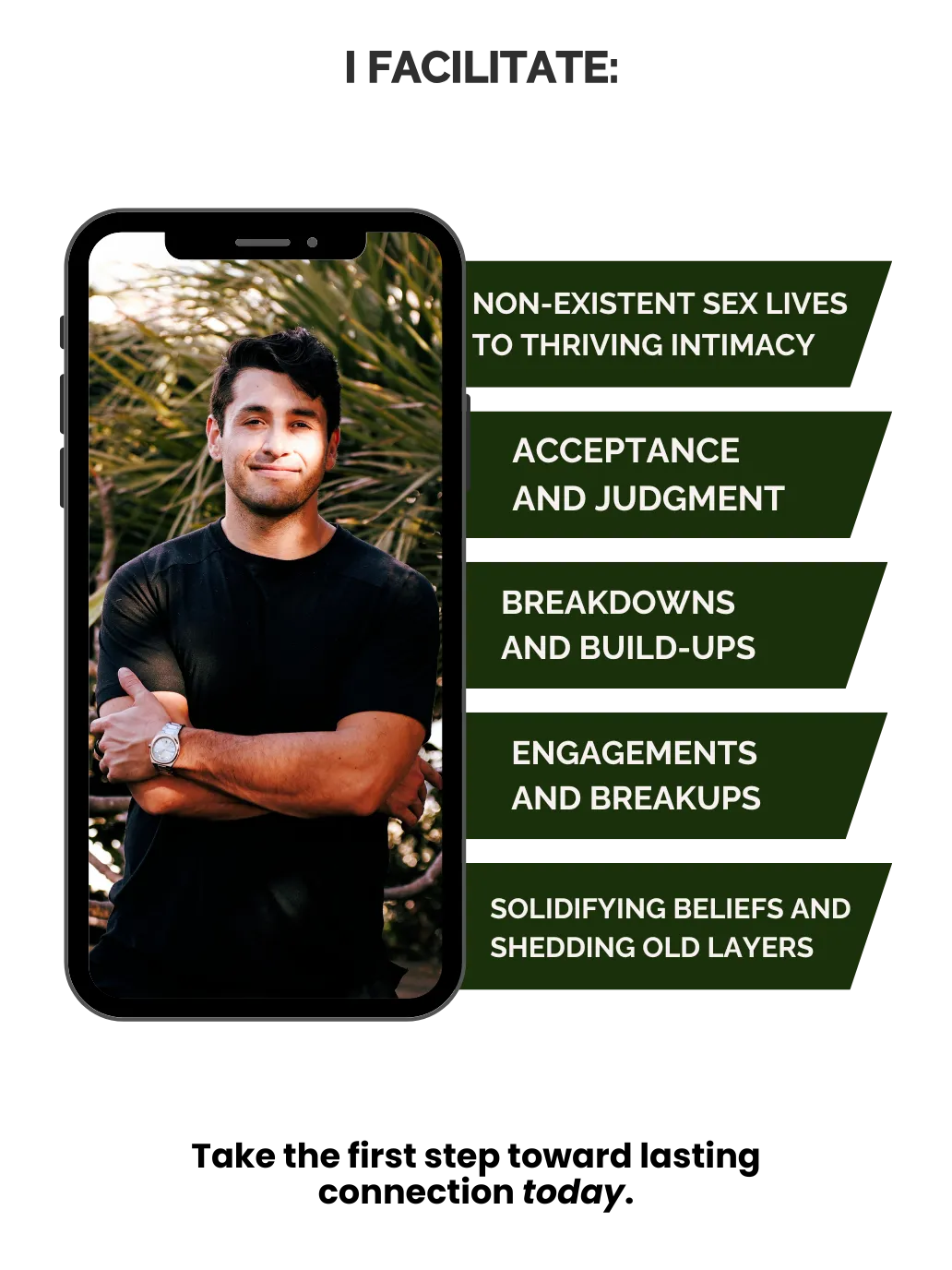Helping Founders Turn Visibility and Trust Into Predictable Revenue Through Authority Marketing and Fractional CMO Support.
If your brand is being seen but not converting, we’ll help you fix that fast—using SEO, PR, and high-converting messaging systems tailored to your market.
Trusted By:










Find out exactly why your site isn’t ranking—and how to fix it fast.
Featured Thought Leader in Entrepreneur Magazine
His Thought Leadership extends to the pages of Entrepreneur Magazine, where he shares high-level insights on business strategy, marketing, leadership, psychology, and personal mastery—helping high-earning men break through limitations and achieve extraordinary success.

Perfecting How to Communicate Your Needs in a Relationship
Understanding the Importance of Communication in Relationships
Imagine a world with no communication. It would be chaotic. Relationships are the same. Communication is the bridge between two people. It helps share thoughts, feelings, and needs. This exchange is what builds understanding, intimacy, and connection.
Without communication, relationships can fall apart fast. They may lead to resentment, misunderstandings, and unmet needs.
Related: Relationship Communication Workshop
Why Clear Communication Matters
Effective communication means being clear. It is about making sure your message is heard and understood the way you want it to be. This includes not just saying what you think but also thinking about your tone of voice, body language, nonverbal cues, and facial expressions.
Why does this matter? A lack of clarity can cause confusion.
When you don’t share your thoughts or feelings clearly, your partner has to guess what you really mean. This can lead to misunderstandings and fights. When you communicate clearly, you build trust. It helps remove uncertainty and gives your partner a clear idea of your thoughts and feelings.
The Impact of Miscommunication on Relationship Health
Have you ever felt angry or ignored in a relationship? This often happens because of misunderstandings that come from poor communication. When unmet needs are not dealt with, they can grow and turn into resentment. This builds a barrier between partners.
The strong bond you once had may weaken, making you feel lonely and distant. If this continues, it could lead to the end of the relationship. That’s why it is important to identify and fix miscommunication. Doing this is crucial for keeping a healthy and satisfying partnership.
Recognizing Your Own Needs
Before you can share your needs with your partner, you need to know what they are. Many times, we live our lives without recognizing the feelings inside us.
Figuring out what is important to you in a relationship is the first step. This helps you build a better and happier connection.
Identifying What You Truly Need from Your Partner
Think about what makes you feel loved and valued in a relationship. Do you want nice words, time together, helpful actions, gifts, or hugs? These are all ways to show love. Knowing which ones mean the most to you is important.
When you understand your emotional needs, you can see how those needs turn into actions in your relationship. Being self-aware is key to finding fulfillment, both for yourself and as a couple, even when you have disagreements.
Differentiating Between Wants and Needs
While it’s good to know what you want in a relationship, it is also very important to tell the difference between wants and needs. Wants are things you desire, and they would be nice to have. Needs, on the other hand, are things you must have; they are vital for your emotional health.
For example, you might want to go on weekly dates with your partner, but you need intimacy, affection, and closeness. These needs can be met in many ways, not only through dates.
Knowing this difference helps create better and happier relationships.
Preparing to Communicate Your Needs
Once you know what you need, the next step is to share it clearly. Timing and being ready are very important for a good conversation.
If you rush into a talk without thinking about how the other person feels or pick a bad time, it can ruin your efforts quickly.

The Right Time and Setting for Important Conversations
Imagine trying to have a serious conversation about your relationship needs while your partner is stressed about work or distracted by their phone. Not exactly a recipe for success, right?
Choosing the appropriate time for important conversations is crucial. Opt for a time when you’re both relaxed, present, and free from distractions. Consider the following table as a guide:
Ideal Setting | Avoid These Settings
Quiet evening at home | During a stressful event
Relaxing walk in the park | When either of you is tired
Dedicated date night | In front of other people
Creating a calm and secure relationship environment allows for open and honest dialogue, increasing the likelihood of a positive outcome.
Related: 4 Lessons Learned from Working with 400 Married Entrepreneurs
Practice active listening
Practicing active listening is crucial when it comes to effectively communicating your needs in a relationship. This involves fully concentrating, understanding, responding, and remembering what your partner has communicated. By actively listening, you show respect, build trust, and foster open communication channels in the relationship. It allows both partners to feel heard and understood, leading to stronger emotional connections and healthier relationships overall.
Emotional Preparation: Managing Anxiety and Expectations
Talking about what you need can be hard, especially if those needs were not met before. It can make you feel vulnerable or anxious, particularly in difficult situations. So, you should take care of your own mental health and emotions before starting this talk.
Set your expectations. Keep in mind that communication is not about winning or proving you are right; it’s about understanding each other and finding a way to meet in the middle. Take some deep breaths. Remember, you deserve love and respect. Try to have an open heart and be ready to listen during the conversation.
Beginner’s Guide to Expressing Needs with Clarity
Expressing your needs well means sharing your message clearly, respectfully, and simply for your partner. It involves being honest about your feelings without blaming or criticizing them.
Keep in mind that good communication is a skill you can learn and improve as time goes on.
Gathering Your Thoughts: What You’ll Need to Get Started
Before you start a conversation, it’s good to think about what you want to say. This helps make your message clear. It also stops you from getting distracted during the talk.
Begin by figuring out the relationship needs you want to discuss. What do you feel is missing in the relationship? After you find the need, think about how to meet it in a way that is good for both you and your partner.
This thinking about yourself is the first step to being clear in your communication.
Practice Self-Reflection
Before you can share your needs with your partner, especially when you are not in distress, you must understand them yourself. Spend some time thinking about your emotional needs and see how they are being met in your relationship.
Ask yourself: What do I really need to feel loved, appreciated, and supported? What actions or behaviors from my partner would help meet those needs?
Keep in mind that good communicators start with self-understanding.

Use “I” Statements
One good way to express what you need is by using “I” statements. Instead of saying, “You never listen to me,” you could say, “I feel unheard when I can’t share my thoughts.”
Do you see how this works? “I” statements talk about your feelings and experiences. They do not blame your partner. This method helps build empathy and understanding. It creates a safe space for open talk. Also, be mindful of your tone of voice. Aim for calmness and sincerity.
Related: 4 Business Principles That Can Turn Your Marriage into a True Partnership
Be Specific and Direct
Vague language can cause misunderstandings. When you share your needs, be specific. Instead of saying, “I need more attention,” you could say, “I feel loved when we spend quality time together without distractions. Can we plan 30 minutes each evening to reconnect?”
Clarity is important for good communication. When you clearly explain what you want and how it can happen, you help your partner know what to do. This directness helps both of you understand each other better. It also encourages working together to find solutions.
Encourage Open Dialogue
Communication works both ways. After you share your needs, let your partner speak. Listen carefully to what they say without interrupting or getting upset.
Open dialogue depends on active listening and compassion. Encourage your partner to share their ideas and feelings freely. Make a safe space for them, so they feel no fear of being judged. Keep in mind, the goal is to understand one another, not to win an argument.
Reinforce Positive Outcomes
When your partner meets your needs, it is important to say thank you and show that you appreciate what they do. Complimenting them is a great way to encourage the good behavior you want to see more of. Let them know how much their actions matter to you.
For instance, you could say, “I really appreciate you taking time to listen better. It makes me feel loved and understood.” By showing your gratitude for good actions, you create a positive loop. This encourages your partner to keep trying and brings more fulfillment to your relationship.
Overcoming Common Communication Barriers
Communication can be difficult, even when we mean well. Things like emotional blocks, past experiences, and fixed habits can stop us from sharing our thoughts clearly.
It is important to see and tackle these obstacles. Doing so can help us build better and deeper relationships.

Navigating Emotional Blocks and Vulnerabilities
Talking about our needs can make us feel exposed. This can bring up feelings of being vulnerable. Our past relationships, childhoods, or pressure from society can cause emotional blocks. These blocks make it hard to show our true selves.
It’s important to recognize these vulnerabilities with kindness. It’s okay to feel afraid or unsure. Remember, being vulnerable does not mean you are weak; it is actually where intimacy and connection begin. When you talk openly and honestly, you help create a safe space by considering key factors for better understanding and emotional support.
Dealing with Defensive Responses
Sometimes, even when we try hard, our partners can get defensive when we try to talk. This reaction usually comes from fear, insecurity, or past pain.
Instead of being defensive back, try to respond with empathy. Good communication needs understanding, not competition. Take a moment, breathe deeply, and try to see things from your partner’s side.
Use “I” statements to say how their reaction affects you. Encourage them to express their thoughts too.
Building a Foundation for Ongoing Communication
Effective communication is not just a single event; it is a continuous process. It needs care and focus over time. Like a garden, relationships grow and get stronger when you look after them regularly.
By having regular check-ins and making a safe place for sharing, you can build a strong and healthy connection.

Establishing Regular Check-ins with Your Partner
Life can get busy, and we may forget to keep in touch. That’s why having regular check-ins is important for having a healthy relationship. You can think of these check-ins as little dates. They help you connect, share what’s new, and talk about any needs that come up.
You don’t need to make it very formal or long. You can take just 15 minutes each day to talk. This small bit of time can really help. Use it to improve your communication skills, listen to your partner, and care about what’s happening in their life.
Creating a Safe Space for Sharing and Empathy
Open communication works well when both partners feel emotionally safe. This means making a space where they can share their thoughts and feelings without fearing judgment, criticism, or rejection.
Encourage openness by responding to your partner with empathy and understanding. Let them know you value their feelings, even if you don’t completely get them. Sharing isn’t always about finding a solution. Sometimes, it’s just about being heard and supported.
Conclusion
In conclusion, good communication is key for healthy relationships and effective conflict resolution. When you clearly share what you need and listen to your partner, you create understanding and respect. It is important to know the difference between wants and needs. You should express yourself clearly and make a safe space for open talks. Regular check-ins and empathy are important for strong connections. These things help partners feel heard and valued. Use the power of communication to make your relationship stronger and deepen your bond with your partner.
Struggling with Communication? Take The 5 Day Challenge
Frequently Asked Questions
How can I communicate my needs without sounding needy?
Use “I” statements to share your feelings.
Be clear about what you need in your relationship.
Avoid blaming or accusing your partner.
What should I do if my partner doesn’t acknowledge my needs?
Rephrase what you need in a way that connects with them. If you need help, look for professional advice or check out communication tips. This can enhance your healthy relationship dynamics.
Can therapy help with communication issues in relationships?
Yes, therapy gives you a safe place to talk about communication issues. It can help you get tools to make your relationships better. Therapy can also improve your mental health and help you learn better ways to communicate.
How often should couples have deep conversations about their needs?
There is no specific number to aim for. Focus on having regular check-ins to keep the intimacy alive. Have deep conversations when you need a stronger connection and better understanding.
What are some signs of effective communication in a relationship?
Feeling heard and understood is important in a relationship. When you have empathy and validation, that helps too. Open dialogues show good communication. Also, attentive listening and positive body language are clear signs of effective communication.
THE JOURNEY: FROM ENTREPRENEUR TO INDUSTRY LEADER

The Protein Co.
(San Diego Protein Company)
Before his tenure at The Idea Collective, Joey founded The Protein Co. in 2014, a health food company that revolutionized the market with its innovative gluten-free, vegan, and no-sugar-added Protein Donuts. From startup to acquisition in 2018, his entrepreneurial journey was marked by strategic innovation and market disruption, a story he shares in his most recent book (available on Amazon)—detailing the lessons, struggles, and victories along the way.
The Idea Collective / Thought Leader
As the CMO of The Idea Collective (now Thought Leader), Joey leveraged his entrepreneurial skills to make an impact in the consulting industry. Under his leadership, the company experienced significant growth and helped over 250 individuals earn a spot on the prestigious TEDx stage. His expertise in brand positioning, authority building, and storytelling made him a sought-after strategist for industry leaders looking to take their message to a global audience.


Empowered Man
Joey then joined Empowered Man as the Client Success Director from 2020 to 2023, where he helped over 650 men become better fathers, husbands, and leaders. The program was dedicated to personal growth, improved communication, and strong leadership for men navigating divorce and relationship struggles—saving marriages and transforming families in the process. But Joey knew his work wasn’t finished. He saw a bigger mission—to create a complete transformation system for men, built on behavioral psychology, leadership, and real-world strategies that WORK. That’s when Modern Man Brotherhood & Marriage Breakthrough Method™ was born.
Discover the Proven System That Has Helped 1,100+ Men Take Back Control of Their Relationships and Masculine Leadership
INTRODUCING THE MARRIAGE BREAKTHROUGH METHOD™ MOBILE APP

A step-by-step, proven framework designed for high-achieving men who refuse to settle for mediocrity in their relationships and lives.
This isn’t just about saving your marriage .
It’s about transforming YOU into the kind of man who naturally inspires respect, attraction, and deep connection.

Your career shouldn’t cost you your marriage.
Learn the secrets to having both.

WARNING: Side Effects of Joining This Newsletter Include ...
Laughing at jokes sharper than a dad’s comeback
Re-thinking your relationship and business game entirely
You might even look forward to your inbox (weird, right?)
I Consent to Receive SMS Notifications, Alerts & Occasional Marketing Communication from company. Message frequency varies. Message & data rates may apply. Text HELP to (619)-257-5376 for assistance. You can reply STOP to unsubscribe at any time.
TESTIMONIALS
What others are saying
"I didn’t save my marriage—I rebuilt myself. I’m an entirely new me!"
"A man without direction is like a car without a steering wheel—just drifting. The moment you take ownership of yourself, your emotions, and your leadership, that’s when everything changes. Fill your bucket first, then lead with strength."
- Rob E

"For the first time in a long time, I feel like I’m finally in control—I can breathe again."
"Before you can lead your family, you have to lead yourself. A man running on empty can’t pour into others. Fill your own bucket first—because when you do, you don’t just survive… you lead with strength, clarity, and purpose."
- Brodie L

This space is different because you’re not juggling life while trying to grow—you’re here, fully engaged."
"Transformation doesn’t happen when you’re half in, half out. You have to be fully present, fully committed. No distractions, no ‘video off’—just you, showing up and doing the work."
- Mike & Thuy S.

"I came in lost, ready to walk away. I left with clarity, direction, and a fire to lead."
"Sometimes, you hit a point where you’re ready to throw in the towel—but that’s exactly when the breakthrough happens. This wasn’t just a last-ditch effort; it was the moment everything changed. You don’t just survive… you reclaim your life."
- Matt W.








